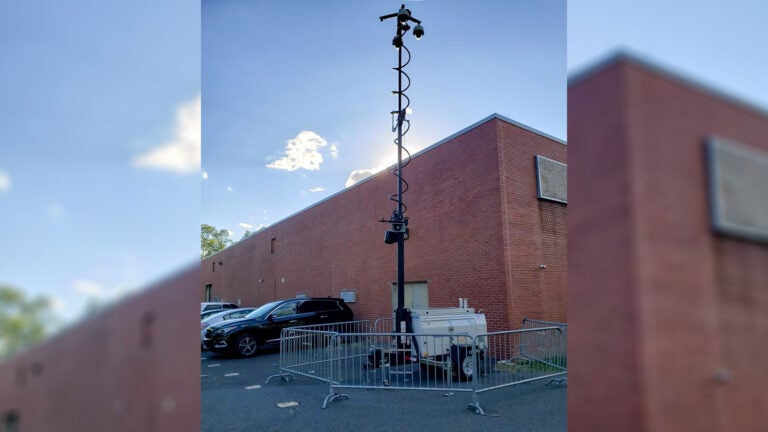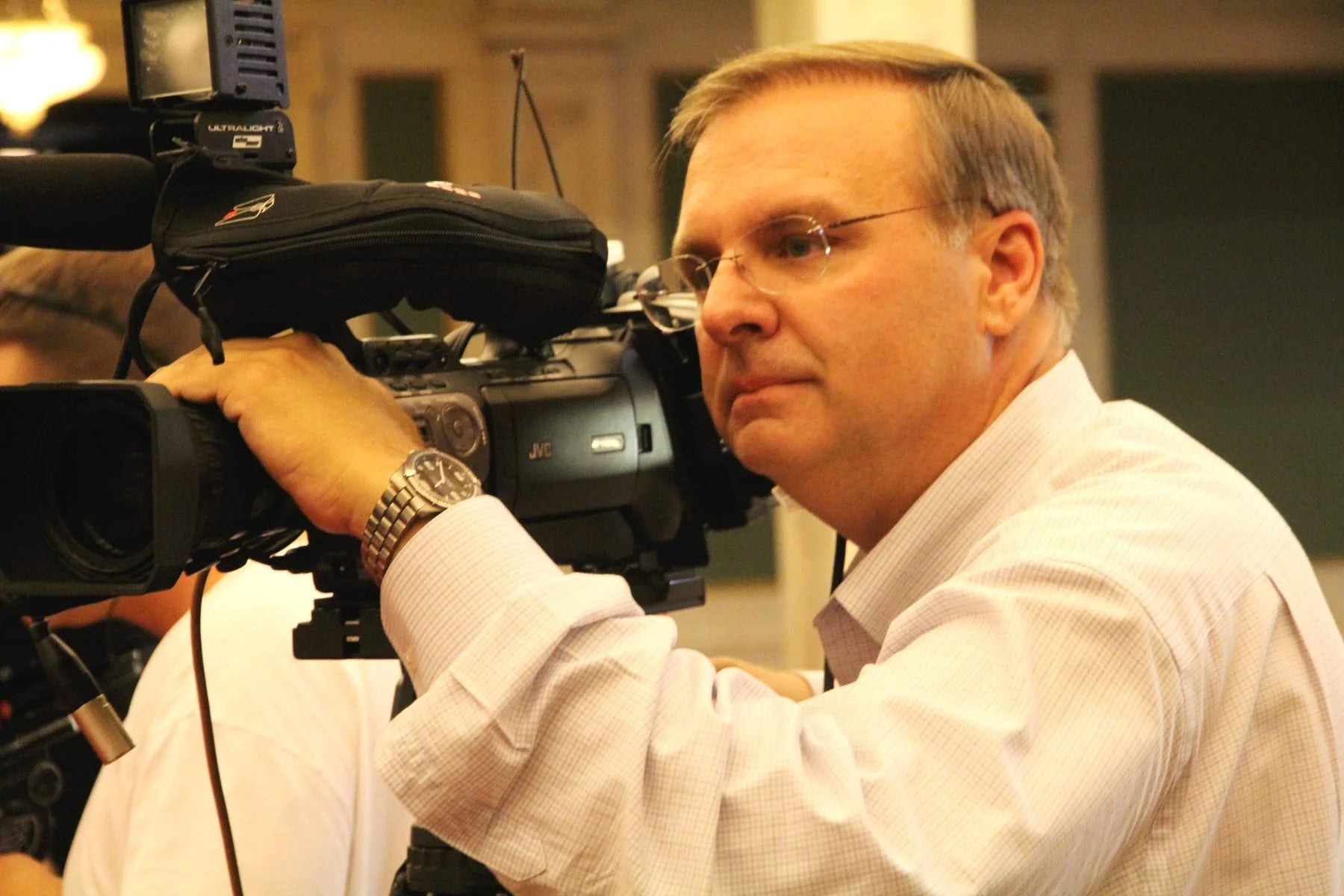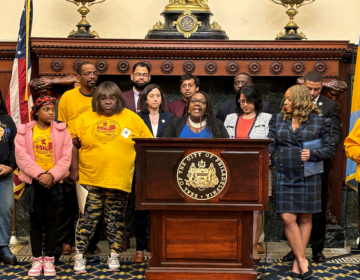Philadelphia lawmakers question nonfunctioning city surveillance cameras
City Council members questioned surveillance cameras that are not working, and how to move cameras from place to place to catch trash dumpers.

File photo: A surveillance camera unit installed outside the city's election storage in East Falls. (Courtesy of Philadelphia City Commissioners)
The City of Philadelphia is having some major issues with its surveillance camera systems. The problems — highlighted during a City Council budget hearing this week — include the inability to move the surveillance cameras and issues with connectivity and storage space.
The city’s Chief Information Officer Mark Wheeler was quizzed about those issues during the hearing, including questions from Council President Darrell Clarke, who said he was promised the cameras used for observing trash dumping could be easily moved once the areas were cleaned up.
“We were told that we had the capability, so here we are years later, and you’re saying that we may not have had the capability,” Clarke said.
Wheeler explained that the connectivity issues included a lack of fiber optic cabling in many neighborhoods, a problem that could only be fixed at a high cost, and the inability to use wireless cameras.
“If there’s not wiring there it has to be trenched to be brought in,” Wheeler said. He added they have not investigated the use of wireless cameras for several years. “When we looked at using Wi-Fi enabled devices, you have to have a good line of sight.”
Wheeler did commit to work with the Streets Department to find solutions, and was told both his office — the Office of Innovation and Technology — and the Streets Department would be called back later in the budget process in order to report on their progress.
Another issue brought up was the need to have a camera trained on remote ballot collection boxes under new state regulations. Wheeler told Councilmember Cherelle Parker that they didn’t have the ability to do that project.
“The teams are stretched very, very thin on these major IT projects,” Wheeler said, adding that he “didn’t want to take on” another major effort to make sure the remote ballot boxes had 24-hour surveillance.
The office did put city leaders in touch with outside contractors that might be able to help. Wheeler added they are also working to do upgrades on storage capacity for the police department system that is used to assist in fighting crime.
Wheeler said the city spends about $415,000 a year on maintaining cameras, and another $213,000 on equipment. His department installs cameras where the police instruct them to do so, along with other departments that have separate budgets for video surveillance.
City officials hope to expand the system in the future and Wheeler told City Council members he will report back on any updates that are done.

Get daily updates from WHYY News!
WHYY is your source for fact-based, in-depth journalism and information. As a nonprofit organization, we rely on financial support from readers like you. Please give today.






